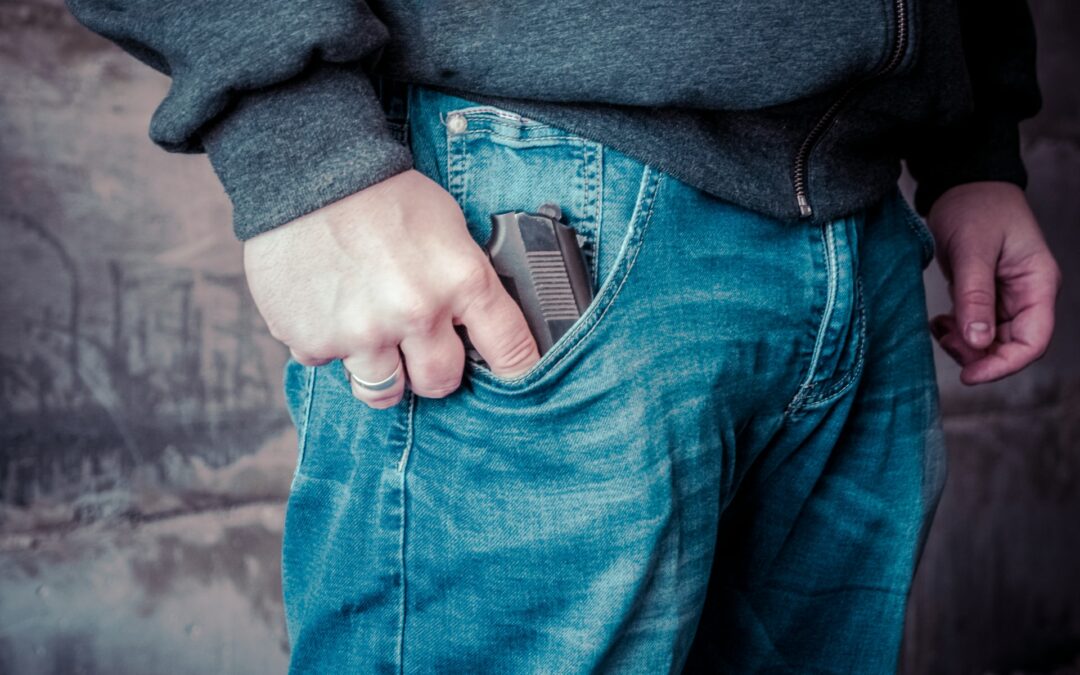Can we sue our way to safety from gun violence?
Question:
I’m a member of an organization in Georgia which is interested in gun reform. I heard about a recent case in Connecticut which suggests that gun manufacturers can be sued for harm caused by the guns they make and sell. If that’s the case, can’t we sue gun manufacturers every time a criminal shoots someone in Atlanta? Can we sue gun manufactures and force them to make guns less dangerous to citizens, school children, and law enforcement officers who are subject to being shot by criminals and psychopaths?
Brief answer:
Probably not. However, you may be able to hold them accountable for irresponsible marketing strategies.
To hold gun manufacturers and sellers civilly liable, the companies’ actions will have to fall into one of six exceptions to the Protection of Lawful Commerce in Arms Act (PLCAA). The only exception which may apply in your scenario is the one that will require the manufacturer to be in violation of Georgia’s Fair Business Practices Act which prohibits “unfair and deceptive” acts.
Still, tying criminal shootings to deceptive trade practices by gun makers would require a special set of facts which will most likely be related to advertising. However, since many criminals who commit gun crimes have never seen an advertisement for the weapons they use—and since a lot of gun crimes involve stolen weapons—getting your lawsuit all the way to the jury will not be an easy task.
I. Tort law as an impetus to create a safer America
Every day, tort lawyers empower the little guy and protect citizens from misconduct of big corporations. To illustrate, if your child isn’t wearing flaming pajamas, if your car doesn’t explode when you’re rear-ended, and if your doctor is careful regarding any part of your medical treatment, you can thank a tort lawyer.
So, it’s no surprise that people interested in protecting the public from gun violence are turning to tort law for help.
However, in 2005, Congress gave gun manufacturers broad immunity from civil tort lawsuits by enacting the Protection of Lawful Commerce in Arms Act (PLCAA).[1] While the PLCAA is broad, it carves out six exceptions to the immunity granted under the act.[2] Of the six exceptions, only two apply to lawsuits brought by citizens against gun manufacturers: the “knowingly violated a…statute” exception and the “breach of contract or warranty” exception.[3] Further, as a result of the Connecticut Supreme Court’s holding in Soto v. Bushmaster Firearms Int’l, LLC, the “knowingly violated a…statute” exception has become a critical weapon in the effort to stop gun manufacturers from carelessly—or intentionally—influencing people to engage in gun violence.[4]
In Soto, family members of several of the deceased victims of the Sandy Hook Elementary School shooting of 2012 brought a wrongful death lawsuit against the manufacturer of the Bushmaster XM15-E2S semiautomatic rifle (an AR-15 style weapon) used in the attack. According to the Plaintiffs, the Defendants violated the Connecticut Unfair Trade Practices Act (CUTPA)—which prohibits “unfair or deceptive acts or practices…”—by advertising and promoting unlawful “offensive use of the rifle” to wage war on people rather than lawful uses such as hunting and self-defense.[5] The Connecticut Supreme Court agreed that such advertising would constitute an unfair and deceptive act and thereby violate CUTPA. So, the Plaintiffs were allowed an opportunity to go back to the trial court and try to prove that the marketing of the weapon led to the shooting.[6]
Georgia’s Fair Business Practices Act is similar to CUTPA since it also includes a prohibition of “unfair or deceptive acts or practices…”.[7] Thus, a Plaintiff seeking to hold a gun manufacturer liable for death or injury could possibly take the same approach as the Plaintiff’s in Soto.[8]
II. Reality: Most gun-related homicides are not a result of deceptive trade practices
However, most instances of gun violence will fail to rise to the level of being the result of unfair or deceptive trade practices for two major reasons: (1) gun crimes are often committed with weapons marketed for self-defense and (2) guns used in crimes are typically stolen.
First, guns commonly used by criminals are not the questionably advertised AR-15s discussed in Soto.[9] Instead, criminals in cities across America are using small handguns such as 9mm Lugers[10] and .40 Smith & Wesson’s[11]—guns which reputable manufacturers often legally promote as self-defense weapons.[12] Unless advertisements and marketing campaigns are promoting illegal use of the commonly used handguns mentioned above, Georgia’s Fair Business Practices Act will not apply and gun manufacturers are going to be immune to a lawsuit due to the PLCAA.
REPORT THIS AD
Second, 80% of gun violence is committed by stolen guns.[13] Thus, eight out of 10 times, it will be impossible for the victim of gun violence to connect a gun manufacturer’s marketing campaign with the unlawful actions of the criminal perpetrator. Without a sound link between the advertisement and the criminal act, the victim will not be able to establish causation.
III. Summary
Tort law may not create an avenue to pressure gun makers to develop solutions to everyday gun violence but it can force them to market their products in a responsible way. Due to the immunity granted to gun manufacturers, a victim of gun violence will need to show that the gun maker’s actions fall within the PLCAA’s limited exceptions. The exception the victim may find most helpful involves gun makers who promote the illegal use of guns. However, since the vast majority of gun crimes involve stolen guns, it will be quite difficult to establish a causal link between the gun crime and the marketing campaign of the gun manufacturer in many cases.
Footnotes:
[1] 15 U.S.C. §§ 7901(b)(1) (providing prohibition of lawsuits against gun manufacturers by persons seeking recovery “for the harm solely caused by the criminal or unlawful misuse of firearm products or ammunition products”).
[2] 15 U.S.C. § 7903(5) provides six exceptions to immunity granted to gun manufacturers. These exceptions include:
(i) an action brought against a transferor convicted under section 924(h) of Title 18, United States Code, or a comparable or identical State felony law, by a party directly harmed by the conduct of which the transferee is so convicted.
(ii) an action brought against a seller for negligent entrustment or negligence per se.
(iii) an action in which a manufacturer or seller of a qualified product knowingly violated a State or Federal statute applicable to the sale or marketing of the product, and the violation was a proximate cause of the harm for which relief is sought…;
(iv) an action for breach of contract or warranty in connection with the purchase of the product.
(v) an action for death, physical injuries or property damage resulting directly from a defect in design or manufacture of the product, when used as intended or in a reasonably foreseeable manner, except that where the discharge of the product was caused by a volitional act that constituted a criminal offense, then such act shall be considered the sole proximate cause of any resulting death, personal injuries, or property damage; or
REPORT THIS AD
(vi) an action or proceeding commenced by the Attorney General to enforce the provisions of chapter 44 of Title 18…or chapter 53 of Title 26, United States Code….
[3] Id.
[4] 331 Conn. 53, 202 A.3d 262 (Conn., 2019)
[5] Id. at 284.
[6] 331 Conn. 53, 202 A.3d 262.
[7] O.C.G.A. § 10-1-399(b)
[8] 331 Conn. 53, 202 A.3d 262.
[9] Id.
[10] See, e.g., 2017 Firearms Used in the Commission of Crimes, Cal. Dep’t of J. (last visited October 13, 2019), available at https://oag.ca.gov/sites/all/files/agweb/pdfs/publications/firearms-report-17.pdf.
[11] Sarah Kollmorgen, Chicago Criminals’ Favorite Gunmakers: A Visual Ranking, The Trace, (January 6, 2016) https://www.thetrace.org/2016/01/chicago-crime-guns-chart/
[12] See, e.g., Video archive on Smith & Wesson’s YouTube Channel, available at https://www.youtube.com/user/SmithWessonCorp/videos
[13] See, e.g., Christopher Ingraham. New evidence confirms what gun rights advocates have said for a long time about crime, Wash. Post, (July 27, 2016)

